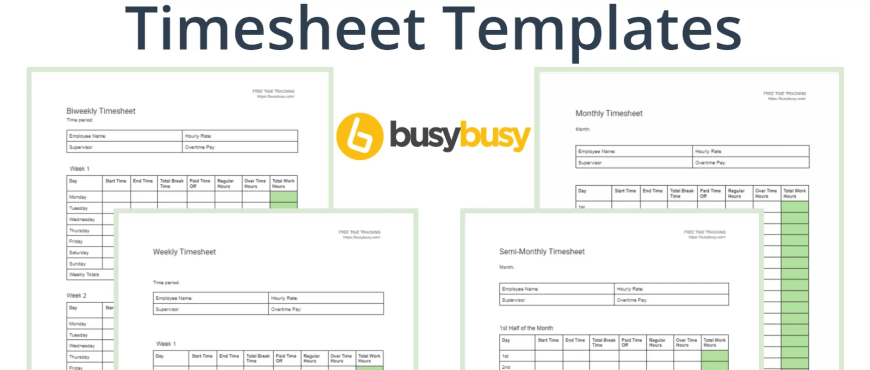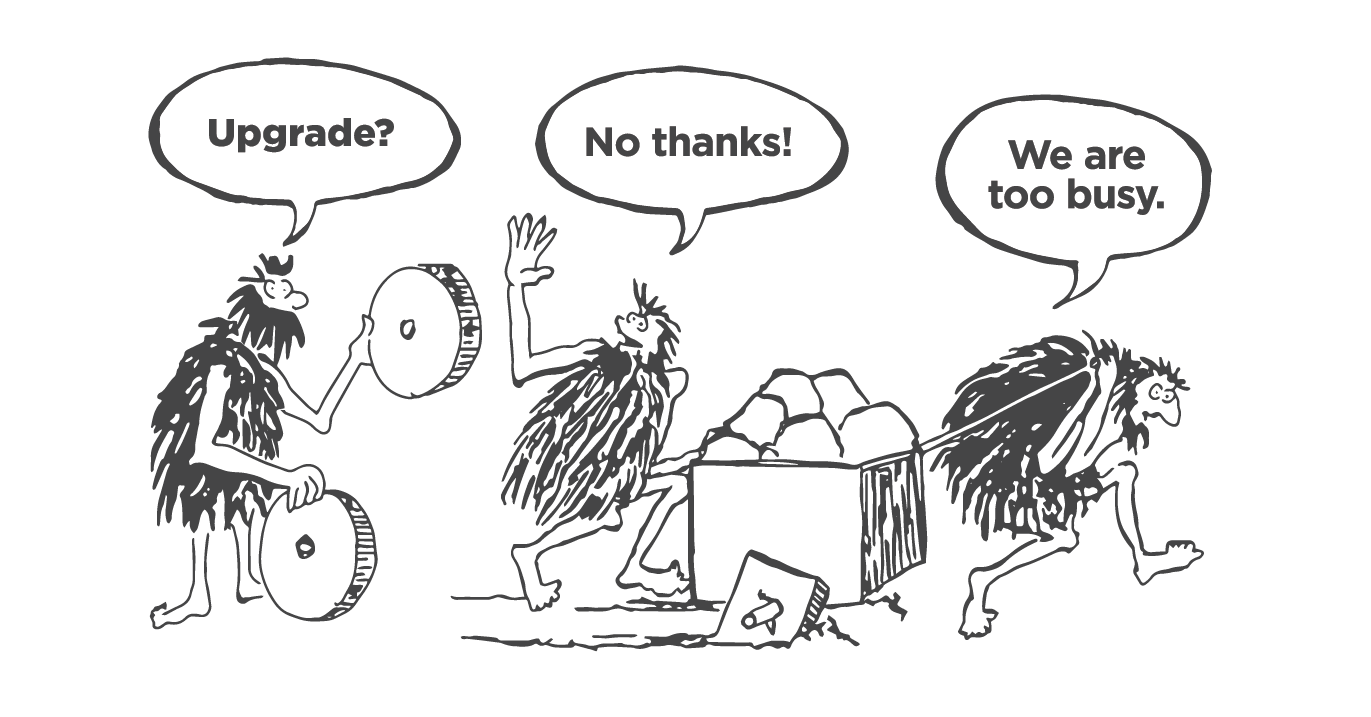
Question: How do you sell your services if no one knows about them? Without marketing, you wouldn’t have anyone to sell to. Here are seven marketing strategies for contractors and construction companies to explore that are proven to boost your business growth.
Table of Contents
- Trade Shows & Industry Events
- Digital Listings
- Partnering with Businesses
- Word-of-Mouth
- Creating Your Website
- Using Social Media
- Email Marketing
- Turning Leads Into Customers
- FAQ
View/download our Marketing Guide for free. No signup necessary.
1. Attend Trade Shows & Industry Events
Networking and client acquisition are the lifeblood of a thriving contractor business. Trade shows provide a unique platform to meet these needs, offering a blend of personal interaction, brand exposure, and insight into the latest industry developments.
View this post on Instagram
How to Maximize Trade Show Attendance
- Research and select relevant trade shows. Not every event will match your business focus. If you’re a landscaper, attending a Roofing Expo may not make sense (unless your strategy includes it). Take note of the dates and registration process, and include travel accommodations to plan ahead.
- Set goals and objectives. What do you want to achieve at the trade show? Are you there to network? Gain leads/clients? Or perhaps learn about new tools and trends. Whatever the case, establishing a clear objective will help strategize your time effectively.
- Prepare an Engaging Booth (If you’re an Exhibitor). Investing in eye-catching designs and interactive elements will decide whether individuals stop to look or walk on by.
Jenn Peranteau, DemandGen Manager and author on LinkedIn, was tasked with a huge 20′ x 10′ problem—An outdated and ugly booth that needed a major design overhaul, pictured below. “It was the wrong size, there was too much blue, it was covered in old branding, and it made this progressive, friendly services company look like a 1990s software maker,” Jenn notes. She developed a step-by-step process that paved the way for a gorgeous, functional, and budget-friendly booth that attracted compliments years following.

Which booth catches your attention?
2. Digital Listing Sites
You’ll need an online presence if you don’t already have one. Doing so will provide your business with many valuable benefits: Increased visibility, appearance in Google Maps, and access to customer reviews. Public listing sites are perfect for marketing your construction business.
❛60% of smartphone users have contacted a business directly using search results.❜ — Semrush 2024
▶ #1 Google My Business (Most Popular)
Listing on Google My Business (GMB) is completely free and easy with custom personalization. Add essential information such as your business name, phone number, website, and hours of operation. This gives searchers an instant overview of who you are and how they can contact you.

▶ Yelp
According to Yelp, there are over 35 million monthly app users. This platform is widely used for its reviews and recommendations. A contractor or construction business can create and submit their Yelp page in a few easy steps. Yelp allows a business to submit its page up to a month before the open date. You can customize your online storefront, add photos, and track customer activity.
Did You Know: The top industries consumers see business reviews as most important are Healthcare, Automotive services, and Service Businesses/Tradespeople? —brightlocal (2023).
▶ Angie’s List (Now Angi)
Angi is a popular website that connects contractors with those who need a variety of services ranging from deck and porches to roof repair, plumbing services, and much more. It allows businesses to create a free profile to share information about products and services. Angi includes options for paid advertisement and memberships to its users.
▶ Thumbtack
According to Thumbtack, thousands of customers visit the site daily to find trade professionals. A contractor or business can showcase its work to users and target the kind of work they want to receive. The cost for leads and bookings will vary depending on the market, job, project size, and how many pros are needed to get the job done.
▶ HomeAdvisor
HomeAdvisor pairs contractors with homeowners who need various home services, from moving and pest control to remodeling and landscape work. HomeAdvisor has many contractor success stories that make a listing on the site worth it.
3. Partner with Other Businesses
In the construction industry, many businesses complement each other’s services. For example, a plumbing company may partner with an HVAC company to offer bundled packages to clients. By partnering with other businesses in your community, you can spread your brand to new audiences and generate new leads. Additionally, these partnerships can help you offer more comprehensive services to your existing clients, resulting in higher customer satisfaction levels.
4. Word-of-Mouth Marketing (WOM)

Old reliable Word-of-mouth is still a powerful and easy way for contractors and construction businesses to build their reputation and attract new clients. The next time you wrap up a project, ask your client to put out a good word for others who may need your service. Referrals from your clients build trust in the community and provide new connections and repeat business. WOM speaks to the quality of a contractor’s work and reassures potential clients in the choosing process.
5. Create/Focus On Your Website
It’s a no-brainer that every business needs a website. When it comes to construction companies, there are a few key elements that should be included on your website to make it stand out. First, you’ll want to showcase your previous projects in a portfolio or gallery for potential clients to see.

Cypress Gulf’s website gallery showcases industrial projects.
It’s also important to include a “Services” page that clearly outlines what your business offers. Finally, make sure your website is SEO optimized, so it ranks higher in search engine results when potential clients search for construction companies in your area.

SEO – Search Engine Optimization

SEO is a process to improve a website’s visibility organically on search engines like Google. Organic listings appear below the sponsored fold of a results page. To get there, conduct thorough keyword research to identify relevant terms your target audience may use, such as “Custom home builders in [Location]” or “residential construction companies.” Integrate these keywords strategically into your website’s content, including titles, headings, and meta descriptions.
Organic listings are an important marketing strategy for contractors because they hold trustworthiness and credibility that ads seem to lack. SEO provides opportunities for long-term visibility, higher clicks, and saving money toward ads.
Develop high-quality, informative, and engaging content that caters to the needs of your audience. Optimize images, use descriptive alt tags, and ensure your site structure is user-friendly. SEO utilizes a combination of research, analysis, technical, and content writing skills. Many free online resources to learn about SEO can be found on YouTube, online blogs, and Marketing tool sites such as Semrush or Ahrefs.
PPC – Paid Advertising

Paid search is a method to boost ranking on search engine results pages. Start by selecting relevant keywords that align with your business and target audience. Create compelling ad copy that includes these keywords and encourages clicks. Choose a suitable bidding strategy and set a budget for your campaign.
Platforms like Google Ads allow you to define specific targeting parameters, such as geographic location, demographics, and device preferences. Regularly monitor your campaign performance, adjusting bid amounts and ad content as needed. Utilize ad extensions to provide additional information and enhance the visibility of your ads.
Google Ads Extension Types:
- Sitelink. This type allows contractors to add additional links to specific pages of their website. This gives searchers more options to explore a site without having to navigate.
- Callout. These are short snippets of text that highlight key selling points. Popular/commonly used are:
○ “24/7 Customer Service”
○ “Free Consultation”
○ “Open 7 Days/Week”
○ “Easy Process”
○ “Let Us Do The Work” - Call. Add a phone number to your ads to allow users to call your business directly from the search results.
- Location. Add your business address to your ads to make it easy for searchers to find and visit your location.
- Promotion. Highlight special offers in your ads, such as discounts or sales events:
○ “Spring Sale – 15% off all services valid March 19-25”
○ “Limited-Time Offer: Save 10% on your next construction project!”
○ “Referral Program: Refer a friend and receive a discount on your next project.”
6. Utilize Social Media
Social media is an excellent platform for construction companies to showcase their work and attract new clients. Instagram is a visual platform perfect for showcasing completed projects and your team hard at work.
For B2C professionals, social media and email are the top marketing channels, followed by websites and blogs. For B2B, the focus is on website, blogging, and email newsletters. —Hubspot 2024

7. Leverage Email Marketing
Email marketing for contractors can be a powerful tool, especially when retaining clients. By creating a monthly or quarterly newsletter, you can keep your past clients updated on your latest projects, products, and services. Regular communication helps keep your brand top-of-mind for clients who may need your services again and helps foster a stronger relationship between your business and your clients.
Email Marketing Best Practices
- Set clear objectives. What do you want to achieve with email newsletters? This could be to improve engagement or increase client conversion.
- Segment your email list. Target your audience based on location, preference (service or content interest), and customer lifecycle (are they new or existing subscribers?)
- Regularly update. Keep your subscribers updated with new information, data, and other personalized content, such as service or partner recommendations.
- Include Calls-to-Action (CTA). Including prominent CTAs can drive your list to perform a certain action, such as call, click, or subscribe. For a contractor or construction business, some examples are:
○ “Get a free quote today!”
○ “Get expert renovation guidance.”
○ “Request a budget estimate.”
○ “Explore our project portfolio.”
○ “Discover your dream home – Contact Us.” - Create clear and compelling subject lines. Avoid using misleading or clickbait subject lines – this will hurt your credibility. Instead, craft your subject lines to be engaging (ask a question or address a pain point), highlight value, incorporate numbers or stats, and be authentic! Everything down to the newsletter will reflect your brand and tone.
- Create eye-catching email designs. A visually appealing email with a strong CTA is much more likely to attract conversion. Balance images, text, and color theory combinations.
8 (Bonus). Turning Leads Into Customers

Converting marketing leads into customers involves strategy and a personalized approach to guide them through the sales funnel. Here are some key steps to help you with this process:
Nurture leads with relevant content. Proven content that helps to move leads along are testimonials, case studies, and success stories. Developing these will showcase trust and reliability and assure prospects they would benefit from your services. Other content includes email campaigns, social media, SEO-optimized pages, and blog content.
Document and categorize your leads. Popular CRM platforms, such as Salesforce, allow users to classify leads as “qualified” or “not qualified” to help you determine the priority level. Afterward, you can track those leads, assign a status, and build a workflow and conversion process to help your sales team transition them.
Ad Retargeting. This method is useful for leads who have visited your website but have not converted into customers. Create a retargeting ad campaign that reminds those visitors of your services and why your company will be the best fit for them. Use incentives or limited-time promotions to create a sense of urgency for those considering taking the next step.
Create a solid Sales team. Whether you’re a team of one or many, setting clear sales objectives will give you direction going forward. Afterward, develop an efficient sales process that includes lead generation, qualification, and closing strategies. Invest in a positive culture with continuous learning and regular feedback. Adapt and innovate to encourage new sales techniques that align with technology and construction industry trends. Building your sales strategy or team requires investment and a strong commitment to continuous improvement.
Frequently Asked Questions (FAQ)
Where can I advertise my construction or contracting business?
Popular ways to advertise a construction or contracting business are at construction trade shows and events and digital listings on popular review sites such as Google, Yelp, Thumback, or Angi. Other methods include advertising on social media, Google Ads, or physical promotion such as vehicle signage, business cards, local banners, billboards, and flyers. You may find that a combination of the above will significantly increase your business presence.
How to do marketing for a construction company?
First, decide if you want to do your marketing in-house or outsource it to an agency or freelancer. To handle marketing for a construction company, you must thoroughly know your services and target customers. Afterward, begin a plan for methods you’d like to try, such as trade shows, industry events, online advertisements, or local/physical ads. Budget and time should be considered with each strategy you are interested in.
How much do contractors or construction companies spend on marketing?
Contractors and Construction businesses spend anywhere from 7-11.8% of revenue on marketing, according to the U.S Small Business Administration. When a construction company is just starting, it is normal and likely that they’ll spend more to generate awareness and attract a customer base. As the business becomes more established, marketing spend can be reduced – but is still necessary to retain and grow clients. If the business or contractor is unsure of how to create a marketing budget, consulting with a financial advisor who understands them and their business needs is recommended.
Is it better to use a marketing agency or do it in-house?
Pros of In-House: No one knows your business like you do. Handling the marketing yourself or within your business offers 100% accessibility, transparency, and complete control of the operations and how your brand is seen. The marketing gets better and grows with you and your team.
Cons of In-House: It takes away time that can otherwise be spent on the field or on a project. It can also be costly to hire an in-house marketing specialist or team and buy any necessary software or online marketing tools they would need.
—
Pros of Outsourcing: There are plenty of agencies or freelancers to review and choose from that can be found on sites like Fiverr, Upwork, or a simple online search that would reveal popular digital marketing agencies in the U.S.. Oftentimes, third parties will tailor a robust plan and budget that will fit your marketing needs surrounding the industry, such as construction. They do all the legwork and have their own marketing tools and software that you will not have to buy and learn.
Cons of Outsourcing: Agencies or freelancers will likely have multiple clients and cannot entirely commit themselves to your business. Other disadvantages include complex marketing methodology, communication and availability, as well as holding limited industry knowledge about construction and the contracting space.
What is the difference between Sales and Marketing?
Put simply–You can’t have Sales without Marketing. One attracts customers while the other sells to them. Marketing occurs first, laying the groundwork by creating awareness and interest—attracting leads. The sales team then conducts the direct interactions that convert qualified leads into paying customers. Both coexist and are critical business components that drive customer acquisition and revenue growth.
Marketing is known for its portfolio of creative elements. In construction, that can include trade show booth design, brand merchandise, flyers, social media, video content, web design, newsletters, case studies, blogs, and other promotional content. Significant time and research go into crafting material that attracts and connects with the target audience.
Sales is comprehensive in its communication strategies. This includes in-depth product/service knowledge, negotiation skills, adaptability, client relationship management, and providing valuable insight to other departments such as marketing, customer support, and product development. This helps improve products, services, marketing, and sales strategies.















